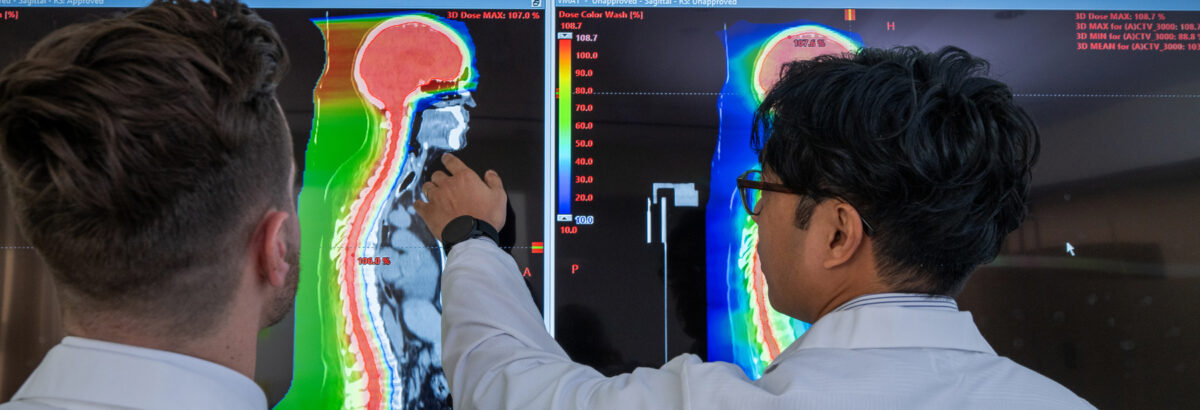Gastrointestinal Cancers FAQs
Frequently Asked Questions
These answers to frequently asked questions can help you decide whether proton therapy for gastrointestinal cancers is right for you.
What types of upper GI cancers can be treated with proton therapy?
Proton therapy is highly effective in the treatment of esophageal cancers such as esophageal adenocarcinoma and squamous cell carcinoma. Proton therapy can also be an effective treatment for primary liver cancers, including hepatocellular carcinoma (HCC), bile duct cancers (cholangiocarcinoma), pancreatic cancers, and liver metastases or cancerous tumors that originated elsewhere but spread to the liver. Recurrent upper GI tumors are often treatable with proton therapy, even tumors that were previously treated with radiation therapy.
What are the benefits of proton therapy for liver, biliary, and pancreatic cancers?
Like proton therapy for esophageal cancer, proton therapy delivers more radiation to the tumor and significantly less to the surrounding normal organs, including the healthy liver, stomach, bowel, and kidneys. Research shows this allows proton therapy to be a less toxic option for the treatment of liver cancers.
Are there side effects?
Side effects of proton therapy depend on the location of the tumor and the types of healthy tissue near the tumor. The most common side effects of radiation therapy for upper GI tumors are fatigue, skin irritation, and nausea.
Can I have proton therapy if I had previous radiation for another type of cancer?
Yes—patients who previously received radiation are good candidates for proton therapy because proton therapy minimizes exposure to healthy tissue and organs. This is extremely important as the human body can only tolerate a certain amount of radiation over a lifetime. Reducing the cumulative dose to the normal tissues may reduce the risk of side effects and allow for more radiation dose to be focused to the tumor, allowing for a better chance of a cure.
How many treatments are required?
The number of treatments varies according to the unique characteristics of your tumor. However, treatment is usually administered five days a week for between one to six weeks
Does the New York Proton Center offer clinical trials?
With an active research program, we are pleased to offer a growing number of clinical trials for a variety of cancers. We are currently enrolling eligible patients in:
– NRG GI003 A Phase III Randomized Trial of Protons Versus Photons for Hepatocellular Carcinoma: NCT03186898
– NRG GI006 Phase III Randomized Trial of Proton Beam Therapy (PBT) Versus Intensity Modulated Photon Radiotherapy (IMRT) for the Treatment of Esophageal Cancer: NCT03801876
Proton Therapy for Gastrointestinal Cancers
For more information about proton therapy for gastrointestinal cancers, download our PDF.



